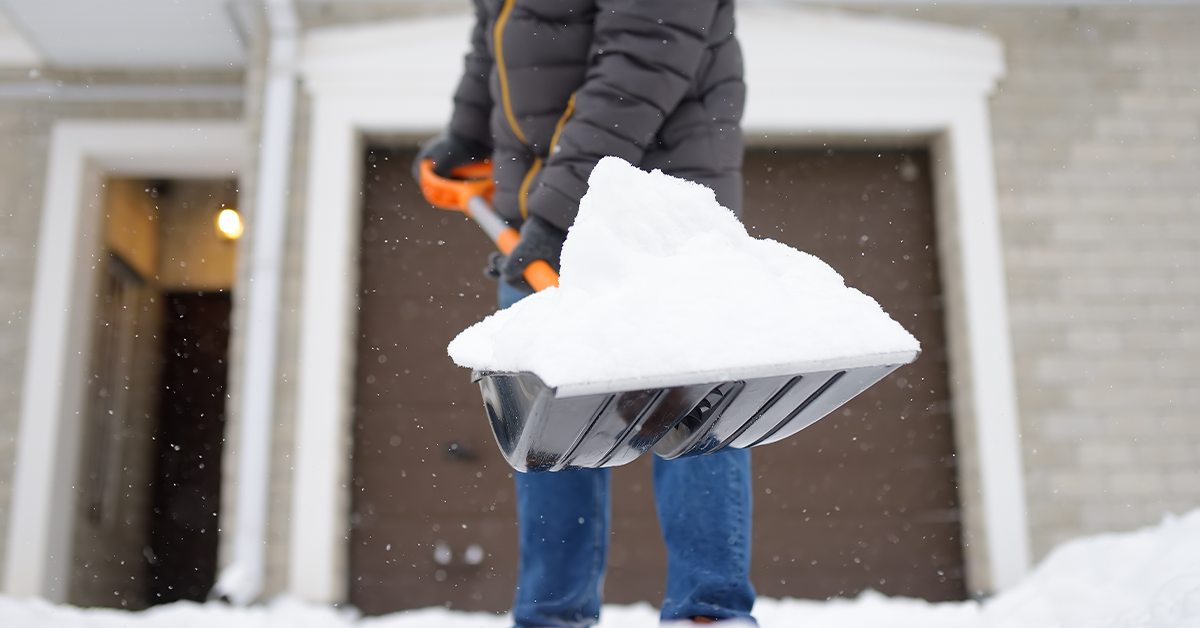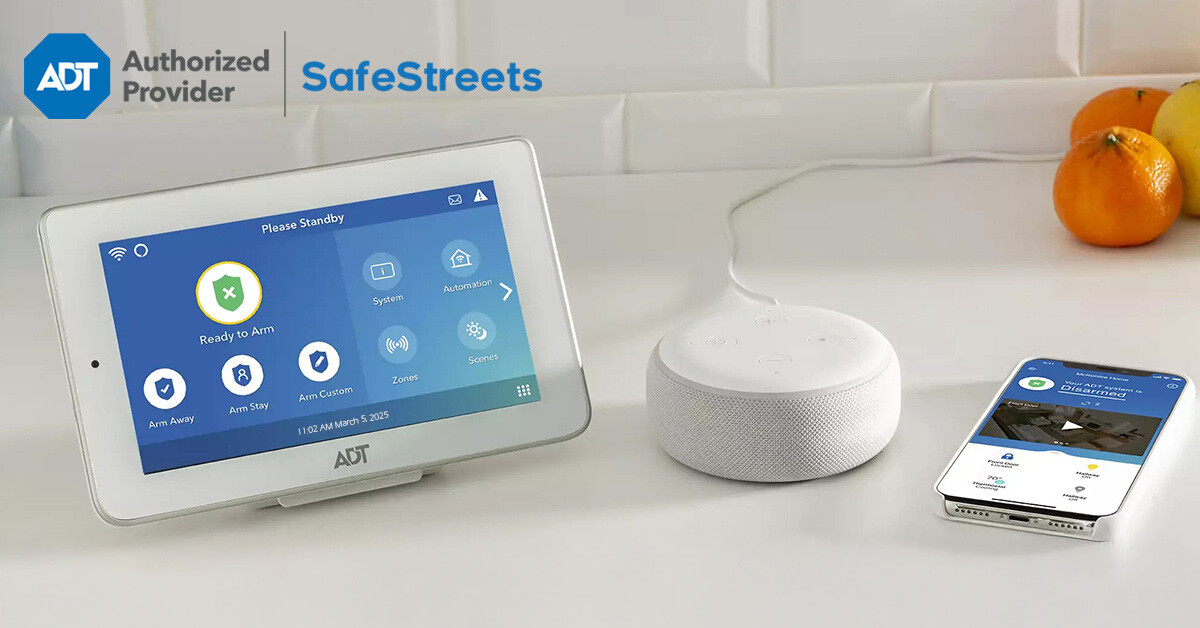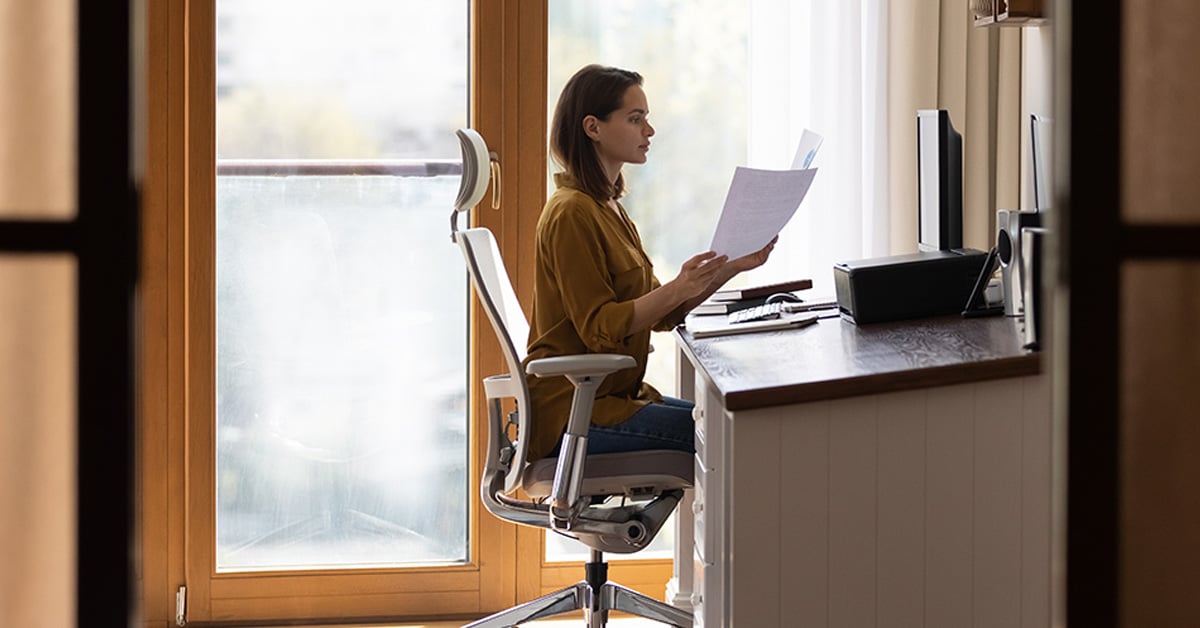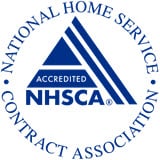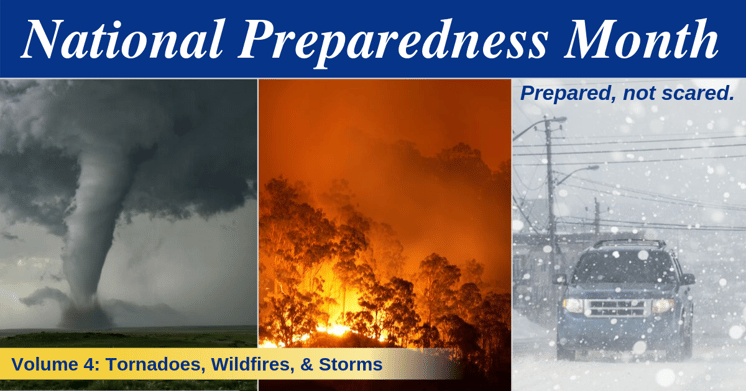
Every September, the United States recognizes National Preparedness Month (NPM). The goal of NPM is to remind and encourage Americans to prepare for emergencies and disasters in their homes, neighborhoods, and communities.
There are two important steps for preparing for any emergency: assemble an emergency kit with food, water, and disaster supplies and make a plan with your family.
The following tips can help you prepare for specific disasters that may occur near your home.
Hurricanes and tropical storms
-
Determine a safe evacuation route and memorize it.
-
Cut back weak branches and remove trees that could fall on your house.
-
Hurricane proof your exterior doors with at least three hinges and a deadbolt lock at least one inch in length.
-
Install storm shutters or attach plywood to your windows to protect them from breakage.
-
Sliding glass doors should be made of tempered glass and covered by shutters or plywood during a storm.
-
Secure garage doors from wind damage. The negative pressure from wind coming into your home through a large opening like a garage can blow out your roof and supporting walls.
-
Use caulk to seal outside openings in walls (like vents, hose bibs, outdoor electrical outlets, and places where cables or pipes enter the wall) to prevent water penetration.
Floods and monsoons
-
If flooding occurs, get to higher ground. Stay out of areas subject to flooding.
-
Slow down in heavy rains; driving too fast through standing water can lead to hydroplaning.
-
If your vehicle is suddenly caught in rising water, leave it immediately and seek higher ground. Just ten inches of water can float average-sized cars, mini-vans, SUVs and trucks.
-
If a traffic signal is out, treat the intersection as a 4-way stop.
-
Avoid low-water crossings. Never drive through flooded roadways.
-
Never drive around barricades; it is illegal and dangerous.
-
Do not attempt to cross flowing streams.
-
Do not let children play near storm drains or ditches after a heavy rain.
-
Turn around, don’t drown. Never walk, swim, or drive through flood waters.
Earthquakes
-
In most situations: drop onto your hands and knees, cover your head and neck or your entire body under a sturdy table or desk, and hold on until shaking stops.
-
If possible, move away from doors, windows, glass, hanging objects, and large furniture.
-
If you’re in bed, stay there and hold on. Cover your head with a pillow.
-
If you’re in the kitchen, turn off the stove and take cover.
-
If you’re in your car, move safely to the shoulder or curb away from underpasses, overpasses, overhead telephone wires, power lines, and utility poles. Take extra caution when you continue driving after an earthquake.
Tornadoes
-
Take shelter immediately and avoid windows.
-
If you’re in a house, go to the basement or an interior room without windows on the lowest floor.
-
Do not stay in a mobile home during a tornado, if at all possible. Take shelter in a nearby building or tornado shelter.
-
If you’re in a public building like a mall or school, move away from windows and glass. Get to the innermost part of the building on the lowest floor, crouch down, and protect your head.
-
Do not try to drive away from a tornado. If you’re in your car, pull over. Do not get out of your vehicle.
Wildfires
-
Prepare for wildfire season by clearing any fuel sources around your home and business—dried leaves, tree limbs closer than 15 feet to the ground, and flammable lawn furniture and outdoor décor.
-
Keep track of fires in your area and be prepared to evacuate.
-
Close air vents and turn off your central air conditioning system.
-
Set up a filter or air purifier to keep the air in your home as clean as possible.
-
Wear a respirator mask whenever you go outside. Not all masks offer the same level of protection, so make sure to choose one rated for wildfire smoke.
Winter Storms
-
Light and heat your home safely. Open flames can lead to house fires, so choose electrical sources of light and heat whenever possible.
-
In the event of a power outage during a winter storm, do not use a gas stove to heat your home. Keep warm with cordless space heaters, blankets, coats, or your wood or gas fireplace.
-
Do not burn paper in a fireplace. Burning paper can release flying embers up to the roof, causing a house fire.
-
Keep heat sources at least three feet away from curtains, bedding, furniture, and other flammable items.
-
Avoid opening doors or windows unnecessarily.
-
Close off rooms you’re not using to conserve heat.
-
Seal doors with towels or rags, and cover windows with drapes or blankets.
-
Stay hydrated, but avoid caffeine and alcohol. These substances cause your body to lose heat more quickly.

